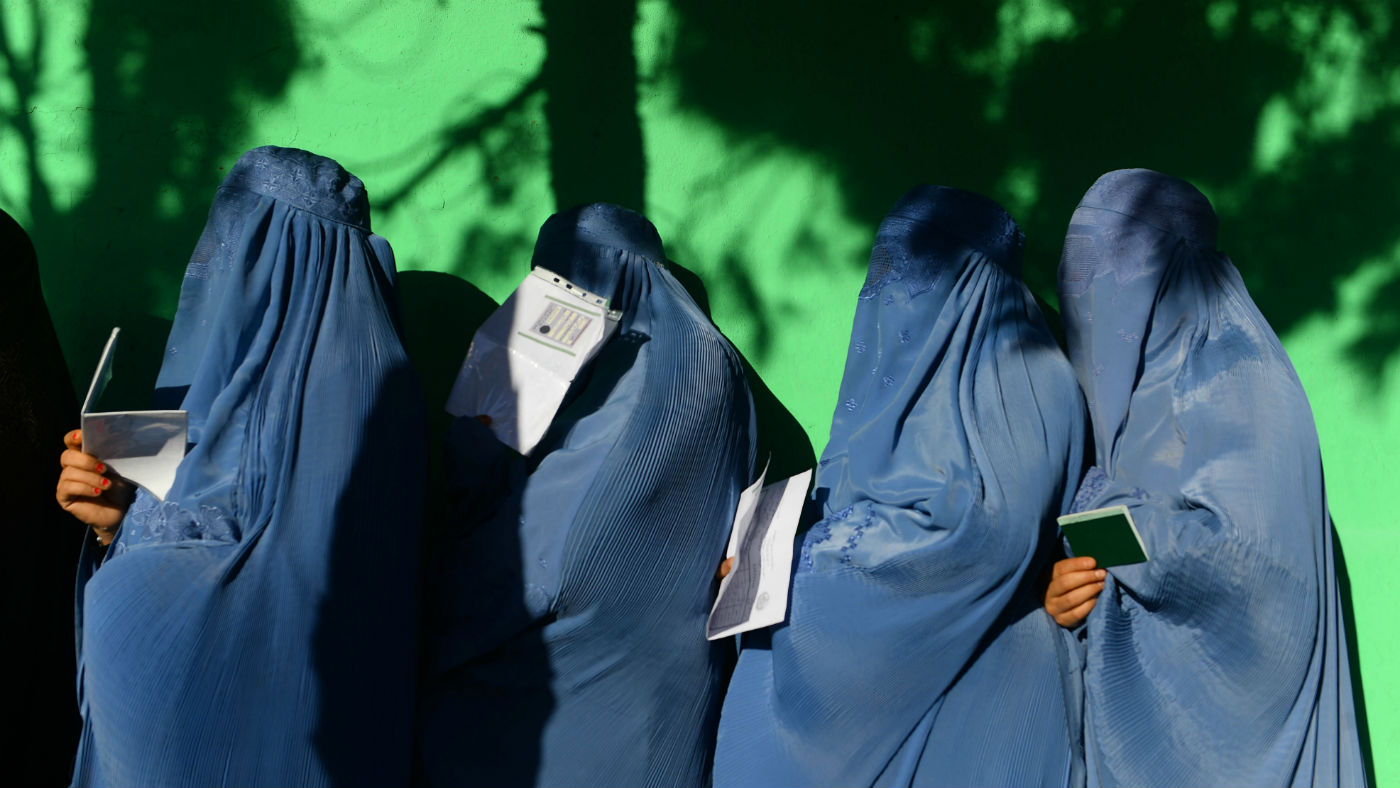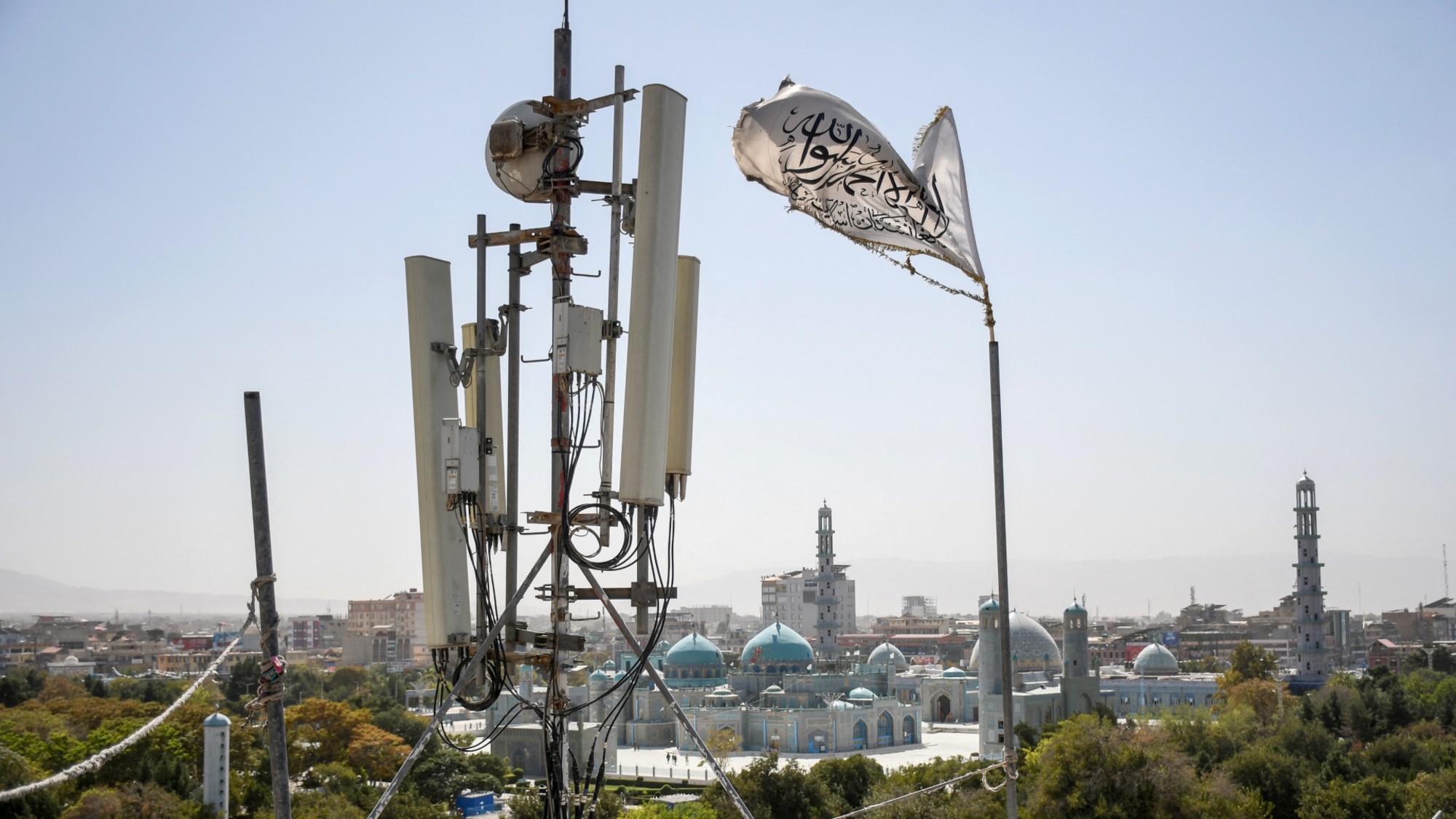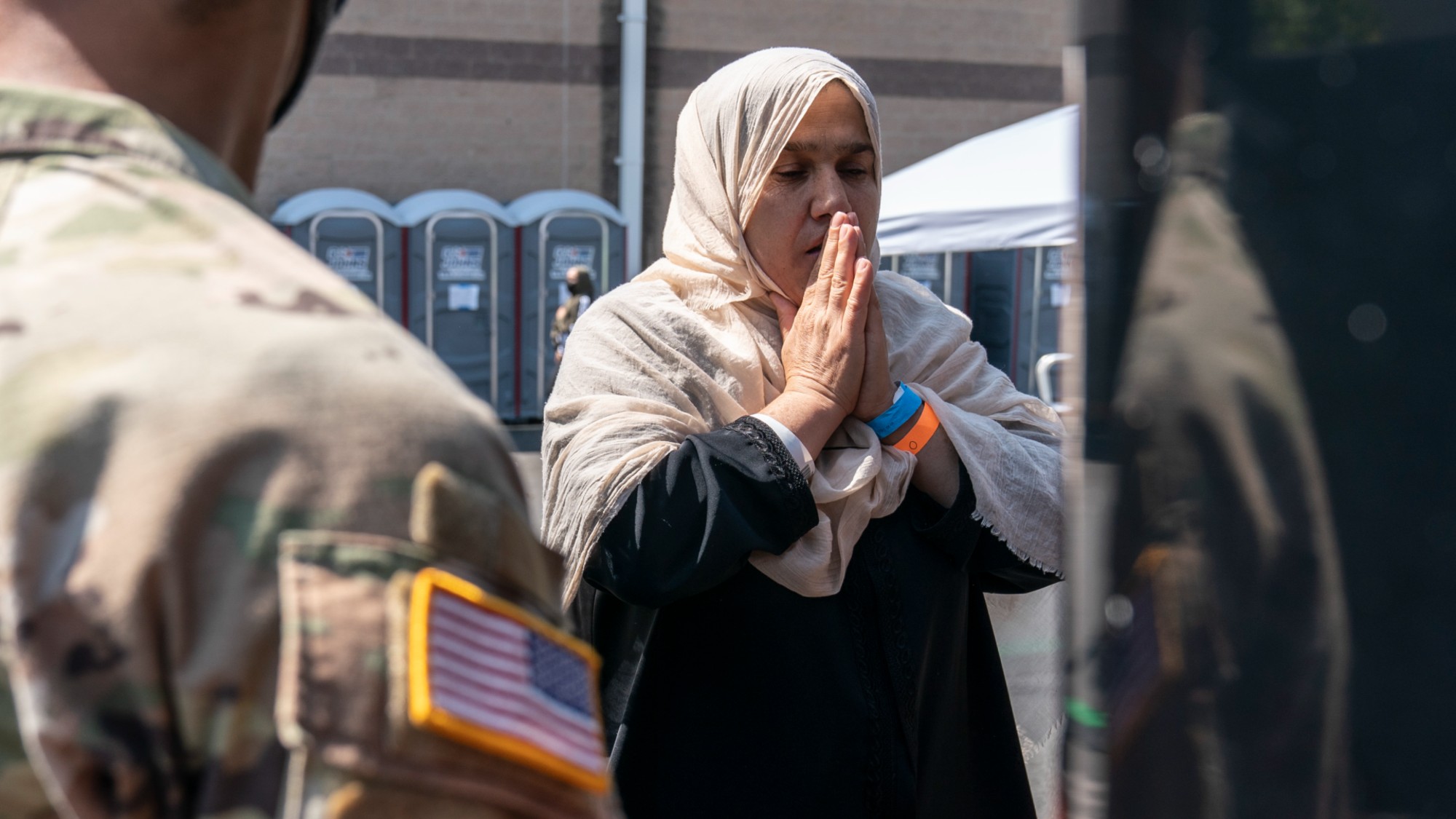Deadly violence mars Afghan election
Parliamentary vote seen as crucial test of democratic progress ahead of next year’s presidential election

A free daily email with the biggest news stories of the day – and the best features from TheWeek.com
You are now subscribed
Your newsletter sign-up was successful
Over three million Afghan citizens have defied the deadly violence that has marred parliamentary elections to cast their vote in what has been described as a key test of the country’s democratic progress ahead of next year’s presidential election.
The United Nations estimates that 36 people were killed and some 130 wounded across the country on Saturday, with further deaths reported yesterday as some polls stayed open an extra day. Eleven people, including six children, were killed yesterday when their vehicle hit a roadside bomb in the eastern province of Nangarhar.
More than 2,500 candidates, including 417 women, are vying for 250 seats “hop[ing] to reform Parliament, challenging the dominance of warlords and the politically corrupt and replacing them with a younger, more educated generation of politicians” says France24.
The Week
Escape your echo chamber. Get the facts behind the news, plus analysis from multiple perspectives.

Sign up for The Week's Free Newsletters
From our morning news briefing to a weekly Good News Newsletter, get the best of The Week delivered directly to your inbox.
From our morning news briefing to a weekly Good News Newsletter, get the best of The Week delivered directly to your inbox.
However, the French news agency described the election as “chaotic” and “marred by deadly violence and technical glitches that have eroded its credibility”.
Abdul Bade Sayad, chairman of the election commission, told reporters armed men loyal to local power brokers in some provinces entered polling stations by force and broke election materials which caused serious irregularities.
Reuters reports that “many independent election observers, seen as an important check on efforts to manipulate the result, have been reluctant to work, fearing militant attacks”.
Yesterday, four observers were found shot dead in the northern province of Balkh, a day after they were abducted.
A free daily email with the biggest news stories of the day – and the best features from TheWeek.com
The elections already had been delayed for three years because of security concerns, and the assassination of an important provincial police chief by the Taliban on Thursday “only added to many Afghans' sense of unease as they turned out to cast their ballots”, reports CNN.
The BBC says “violence had also marred election campaigning”, with 10 candidates killed in the run-up to the polls, after both the Taliban and the Islamic State group vowed to disrupt them.
Despite this, “many believe even holding this election is an achievement” says the BBC’s chief international correspondent Lyse Doucet in Kabul, and will “usher in a more legitimate parliament to replace a discredited assembly and try to move toward presidential elections next year and Taliban peace talks”.
The result is not expected to be known for at least two weeks due to the difficulty in counting and collating votes, but “if it is seen as a “bad election,” it could be more consequential than not holding one at all” says Doucet.
-
 6 gorgeous homes in warm climes
6 gorgeous homes in warm climesFeature Featuring a Spanish Revival in Tucson and Richard Neutra-designed modernist home in Los Angeles
-
 Russia’s ‘cyborg’ spy pigeons
Russia’s ‘cyborg’ spy pigeonsUnder the Radar Moscow neurotech company with Kremlin-linked funding claims to implant neural chips in birds’ brains to control their flight, and create ‘bio-drones’
-
 Political cartoons for February 8
Political cartoons for February 8Cartoons Sunday’s political cartoons include going down the drain, American history, and more
-
 The high street: Britain’s next political battleground?
The high street: Britain’s next political battleground?In the Spotlight Mass closure of shops and influx of organised crime are fuelling voter anger, and offer an opening for Reform UK
-
 Is a Reform-Tory pact becoming more likely?
Is a Reform-Tory pact becoming more likely?Today’s Big Question Nigel Farage’s party is ahead in the polls but still falls well short of a Commons majority, while Conservatives are still losing MPs to Reform
-
 Taking the low road: why the SNP is still standing strong
Taking the low road: why the SNP is still standing strongTalking Point Party is on track for a fifth consecutive victory in May’s Holyrood election, despite controversies and plummeting support
-
 ‘The Taliban delivers yet another brutal blow’
‘The Taliban delivers yet another brutal blow’Instant Opinion Opinion, comment and editorials of the day
-
 It is 'beyond time for us to seek bipartisan solutions' for Afghanistan
It is 'beyond time for us to seek bipartisan solutions' for AfghanistanInstant Opinion Opinion, comment and editorials of the day
-
 What difference will the 'historic' UK-Germany treaty make?
What difference will the 'historic' UK-Germany treaty make?Today's Big Question Europe's two biggest economies sign first treaty since WWII, underscoring 'triangle alliance' with France amid growing Russian threat and US distance
-
 Is the G7 still relevant?
Is the G7 still relevant?Talking Point Donald Trump's early departure cast a shadow over this week's meeting of the world's major democracies
-
 Angela Rayner: Labour's next leader?
Angela Rayner: Labour's next leader?Today's Big Question A leaked memo has sparked speculation that the deputy PM is positioning herself as the left-of-centre alternative to Keir Starmer